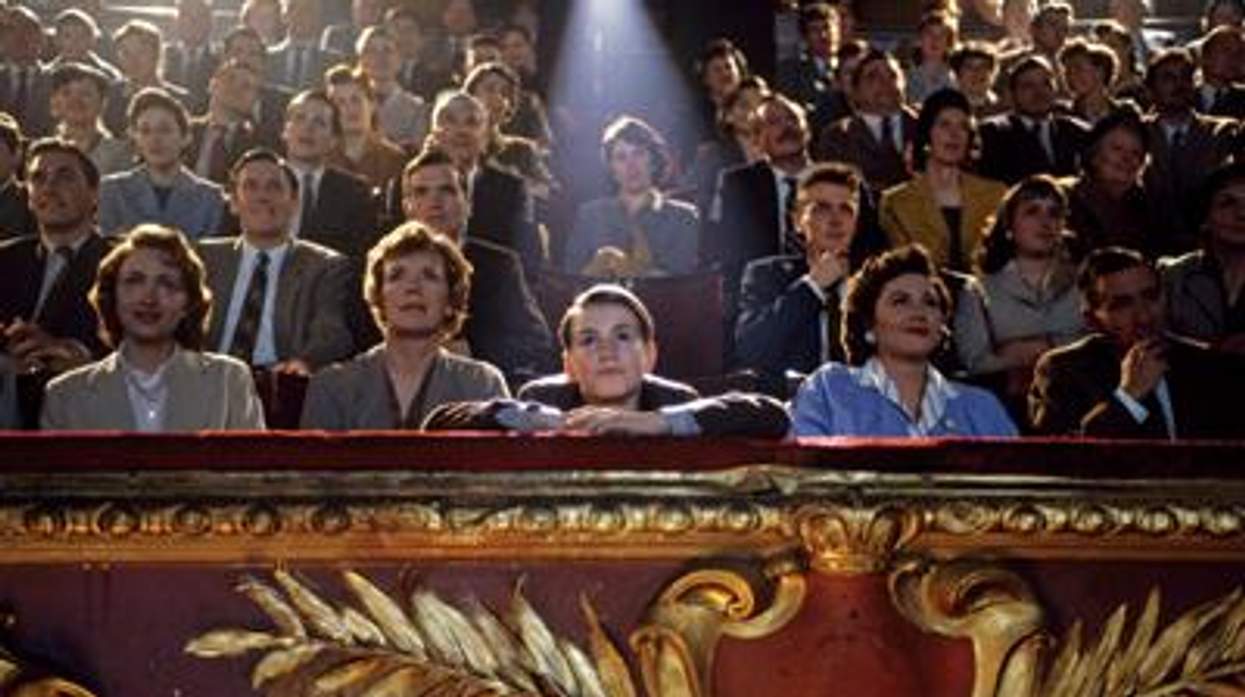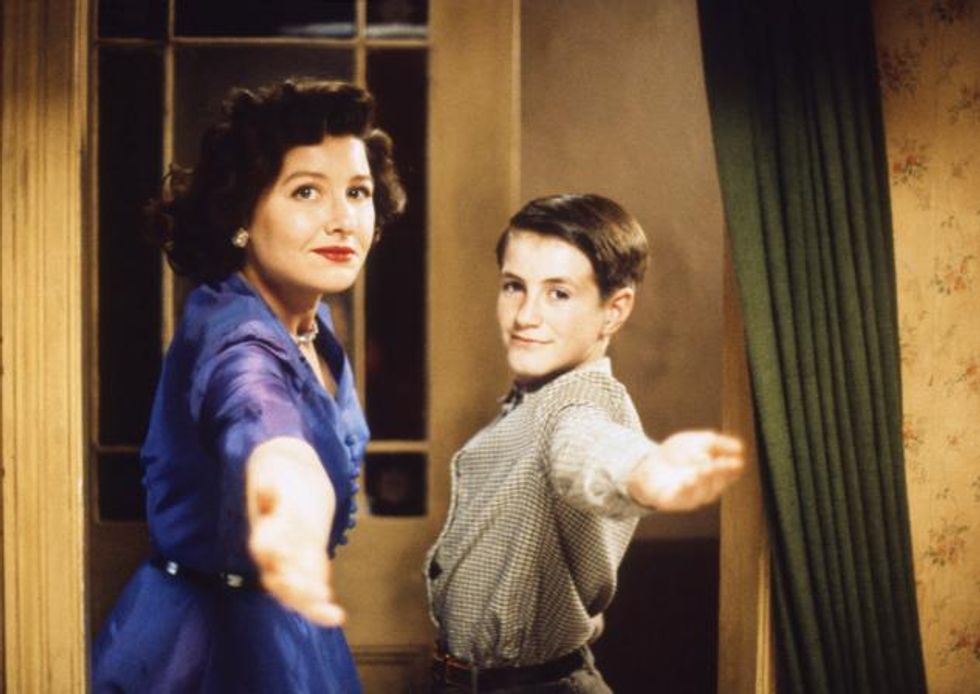"Where's our Bud?"
"At the movies, of course."
If asked to name the greatest gay film ever made, I'd say, with no hesitation, The Long Day Closes (1992) written and directed by British auteur Terence Davies. It's the first film explicitly featuring a gay child -- and so it is about the innocent essence of all of us. It is also Davies' self-portrait of his youth in 1950s Liverpool.
The candor and emotionalism of Davies' recall makes the movie resonate the most poignant parts of everyone's gradual growing-up process, but especially that aspect of sexual awareness that comes early in life -- though it's usually confessed only in horny hetero teen movies.
The young Davies character, who his mother and three older siblings call "Bud" (played by 16-year-old Leigh McCormick), is openly infatuated with the movies. (It's part of that outreach toward show tunes, poetry, dance and fashion familiar to every youth seeking escape from an inverted reality.) Sounds from old films echo throughout The Long Day Closes as influences on Bud's private emotional life (comedies like The Happiest Days of Your Life convey his hope; musicals like Love Me or Leave Me convey his desire; melodramas like Great Expectations and The Magnificent Ambersons express his tragic sense of doom). But these resonances are also cultural premonitions -- the sound clips, as up to date as the sampling in hip-hop records, express an adult knowing of the larger world. They predict Bud's future and fit both Davies' personal recall and the outsider status that classically defines gay identity.
Bud's sense of difference is memorably conveyed in an early scene when he looks outside his bedroom window and sees a shirtless, dark-curly-haired bricklayer who returns his glance with an inviting wink. The flirtation is devastating. Bud's shrinking reaction to it is a powerful illustration of that self-conscious moment when a gay person's first rush of affection makes them realize their uniqueness. The crushing beauty of The Long Day Closes is that it confirms what feels unique is, in fact, universal.
In the years since the American release The Long Day Closes in 1993, no other movie dealing with gayness has come close to that moment of self-recognition. (Only Andre Techine's 1985 Wild Reeds can match it.) Yet watching The Long Day Closes in this new millennium in Criterion's new Blu-Ray DVD restoration does not throw one back to dark days of closeted self-loathing. The film is existentially liberating, rich with Davies' emotional embrace of his family, community, and the experiences that comprise his growing up. The embrace is overwhelming precisely because it does not exclude sorrow, loneliness, homophobia, or racism but includes it all as a realization of an intelligent gay consciousness.
The Long Day Closes is a world away from the P.C. acceptance of troubled gay youth half way out the closet as flaunted in TV's Glee series, and that gives the movie its special relevance. Davies's tribute to pop culture and use of pop songs is hard won because it's personal -- the language of private feeling. His "Tammy" sequence, where Bud feels betrayed by his best friend then consoles himself by thinking of Debbie Reynolds' 1958 Top Ten hit, uses the song as the soundtrack for a montage of his mundane rituals (school, church, the movies). It is one of the magnificent moments in all of cinema.

More than a pop song recital, the "Tammy" sequence portrays that special need and succor that lonely kids take from popular music. It is profoundly moving due to that extraordinary -- gay -- spiritual confession. Although it is also the farthest thing from camp insouciance, where pop pleasure is used to deny sincerity, it works without condemning the defensiveness of camp, that powerful transformation of the banal into the odd, weird, secret and subversive. Davies's life story personalizes the deep love of pop culture as a life buoy that makes one laugh, cry and saves one's life.
It is Bud's wondering connection to the free, adult world that empowers the film's childhood perspective. He appreciates his family for its sense of togetherness and sensitive acceptance of his individuality. The moments of Bud's closeness to his mother, a loving widow with regrets (she sings "If I had my life to live over"), the sister for whom he buys "Evening in Paris" perfume and then sings a song ("A Couple of Swells"), and the brothers whose dating rituals he watches enviously or scrubs their muscular backs, take gay consciousness close to the edge of pathology yet dissolves all complication in unconditional love.
Seen today, The Long Day Closes is a paradigm of how gay artists and audiences can see and understand themselves -- and of their connection to the larger world. It is an "art" film, meaning that Davies uses such storytelling conventions as slow-motion duration and an elliptical narrative structure that contradicts familiar, simplistic television and exploitation movies. Several times in the film Bud looks into the camera, connecting with a viewer's remembered moments of oppression, shame and satisfaction. It is a serious viewing experience, but it is the best viewing experience of gay life. It is beautiful and profound enough to set a high-water level for subsequent films about gay life. All other gay movies can be judged by The Long Day Closes.
The Long Day Closes is remastered on Blu-Ray DVD by Criterion.
Photos courtesy of The Criterion Collection.





































































Charlie Kirk DID say stoning gay people was the 'perfect law' — and these other heinous quotes